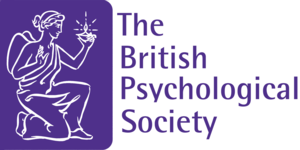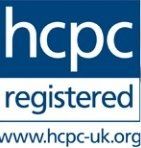Child Autism Assessments
What is Autism?
What is Autism?
What is Autism?
Autism is a neurodevelopmental condition which is characterized by challenges within an individuals’ communication and social interaction. Those with autism may show repetitive behaviours or patterns of speech, have highly focussed interests and experience sensory difficulties. This condition, which is present from childhood, exists along a spectrum, hence the term Autism Spectrum Disorder (ASD) - this means that no two individuals are alike and may experience and be effected by autism very differently. Having autism can bring both strengths and challenges. For example, many individuals with autism benefit from having a careful attention to detail, excellent memory skills, ability to absorb and retain facts and may be noted for their honesty, directness and reliability. However they might face challenges in navigating social interactions, picking up on how others think or feel, dealing with unfamiliar situations or processing abstract information.
Early intervention and support tailored to individual needs can significantly enhance the quality of life for those with autism, fostering their abilities and empowering them to thrive in their own remarkable ways. For this reason, we believe that an autism assessment is key for understanding an individuals uniqueness, identifying strengths and challenges and guiding post-assessment support.
More information on The National Autistic Society - What is autism
Stage 1 - Mandatory Pre-Screen Assessment
Stage 1 - Mandatory Pre-Screen Assessment
All of our autism assessments begin with a mandatory pre-screen, which is considered stage 1 of the assessment process. A parent or carer will need to come with the child being assessed to this first appointment, although the Clinical Psychologist may suggest that they meet for part of the session with them by themselves, depending on their age and how comfortable they may be with this. This session will last up to 90 minutes but sometimes 60 minutes. They will ask a variety of questions to get to know the child and to find out relevant background information about you both. They will explore your concerns and hopes for potentially moving forward with a full Autism Assessment.
After this appointment, you will receive a letter to either offer you an appointment to complete a full Autism Assessment or a letter to advise that the Clinical Psychologist does not feel an Assessment would be helpful. If you are not offered an appointment, you will receive a letter including a working understanding of your child’s difficulties and recommendations to help them move forward.
Stage 2 - Autism Full Assessment
Stage 2 - Autism Full Assessment
Stage 2 of the process requires an in-depth period of assessment which considers both your child’s present and historical functioning. This is split into two separate standardised assessments. The ADI-R (Autism Diagnostic Interview-Revised) takes approximately 3 hours. This focuses on your child’s early development and how this has progressed over time. The Clinical Psychologist may suggest that a parent/carer attends this alone, or that the child is present too, depending on their age and level of engagement/understanding. It would be helpful to look over any relevant written educational information about how the child is functioning e.g. any past or current school reports, pastoral support plans, Education and Health Care Plans, and reports from other professionals. As part of the assessment, the Clinical Psychologist may wish to liaise with the child’s school directly, but this will be discussed with you during the assessment process if necessary.
The ADOS-2 (Autism Diagnostic Observation Schedule, Second Edition)takes up to 90 minutes. During this session, the Clinical Psychologist will ask your child to complete a number of activities and engage them in conversation (where appropriate) to look at areas such as their communication and social functioning. It is standard practice for this session to be recorded in order to enable the Clinical Psychologist to re-watch it to provide a more valid and reliable interpretation. There will be a consent form for you to sign to allow a video recording to take place.
The above assessments are usually completed over a minimum of 2 sessions. These appointments will take place at one of our Therapy Room locations in West Bridgford. You will have opportunities to ask questions and you and your child will be able to take as many breaks as necessary to support you through the process A diagnosis is not a medical examination. You will not be examined physically and will not be asked to provide samples, such as blood.
In order to provide a multi-disciplinary assessment, the Clinical Psychologist will discuss any information gathered with either an Occupational Psychologist or a Speech and Language Therapist depending on which discipline is felt to be the most appropriate.
After your Assessment.
The Clinical Psychologist will provide you with a comprehensive report detailing the outcome of the assessment and whether your child reaches the threshold for a diagnosis of Autism. If so, the report will include a working understanding of how their autism impacts them individually, their strengths, needs, and any recommendations that should be considered to best support them.
You will be offered a feedback appointment to discuss the outcome of the assessment and to talk through any questions you or your child may have about the report. If your child does receive a diagnosis of autism, your psychologist will be able to make personalised recommendations for strategies and support that will assist them in the future. For example, they may discuss with you ways to create a structured routine and environment to provide stability and predictability, techniques for easing anxiety or ways to manage sensory overload. They will also suggest ideas for further intervention work, that you may consider post-assessment. For example therapies—such as psychological, speech, or occupational—which can assist your child in developing social and communication skills, managing emotions, and refining daily tasks. Where Elysian are able to offer particular follow on therapies, they will provide you with further information about these at your feedback appointment.
Sometimes people are told at their feedback session that they aren't autistic, and if this is the case, then the Clinical Psychologist will provide further information about what they have observed during assessment, give alternative explanations for any perceived difficulties and any suggestions for post-assessment support. This information will also be provided in your report.









